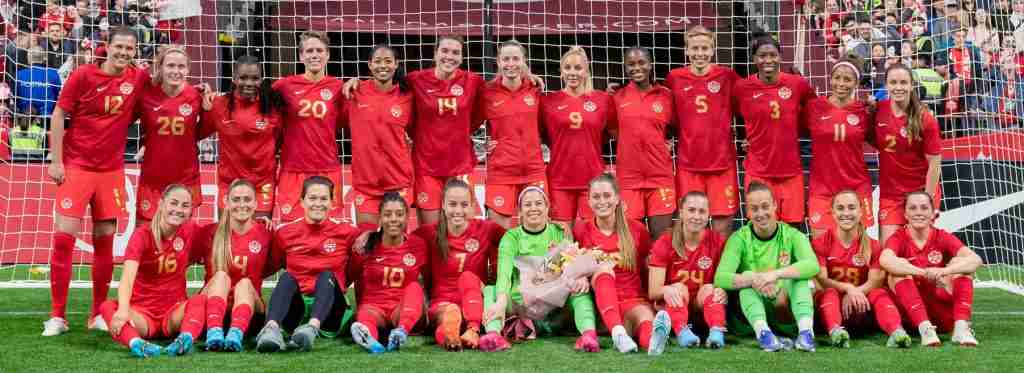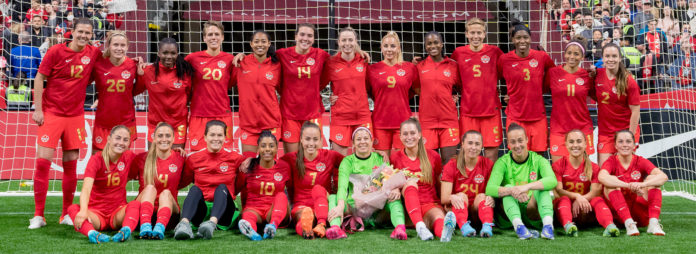Canada’s women’s national soccer team went on strike against Canada Soccer on February 10 to protest budget cuts, wage inequality and the lack of support their team showed just six months before the World Cup feminine.
In a statement to Canada Soccer, the team said these issues are rooted in gender inequality. Canada Soccer ended the strikes by threatening to sue the team, forcing them to continue playing.
So, in the media spotlight, they played – their kits backwards, Canada Soccer crests plastered on them, or in purple jerseys embroidered with the words “Enough is enough.”
At St. Thomas University, student-athletes and faculty interpret the protests with optimism and discuss their understanding of gender inequality in sports.
Abby Cameron, a fourth-year student-athlete studying human rights, criminology and sociology, plays on the STU women’s soccer team as a left back and winger. She started playing soccer before entering primary school and said she couldn’t imagine life without it.
“From my perspective, the women’s team was doing a good thing and standing their ground,” Cameron said of the protests. “This is the only way to bring about the necessary change.”
She describes being a “woman in sport” as a lack of TV female role models to follow, which can lead to detachment from sport. Growing up, she didn’t know many female professional athletes and remembers that only male athletes were considered “the stars.”
“It’s hard to deal with something that’s never televised or shown,” Cameron said. “I feel like it’s really important to see these women…and I feel like it’s huge for…young girls to see that they have the ability to go far in their sport .”
Cameron said playing soccer with STU seemed fair to her, but she feels men are taken more seriously in broader sports-related contexts. She recently had knee surgery after an injury and met with physical therapists, some who viewed her recovery as something they couldn’t really help, and others who treated the situation with care and diligence.
Meanwhile, his male counterparts, who had lighter injuries, were rushed to hospital.
“I guess men in sports have more priority than women in sports,” Cameron said.
She believes that activism for gender equality at the collegiate level would involve women standing up for themselves and men supporting women’s sports by attending their games and speaking about their accomplishments. She added that dialogue around the protests would spill over into gender equity at the local level.
Cameron would like the protests to be successful, but he also believes that the attention paid to the protests is a victory in itself. She said the more people talk about something, the more they will care about it and work toward change.
Michael Dawson is a history professor at STU and teaches a course on sports and world history. The course details the development of sport through time and presents world history through the lens of sport.
Recently, he addressed the theme of gender and sexuality in sport.
“I hope that I set the stage for all of my students to be aware of the types of inequities that exist,” he said.
Dawson said sports were created to “further the interests of men.” It intersected with a social “crisis of masculinity” in the Western world, aimed at reinforcing gender ideals.
Sport, he says, is a tool to entrench masculine ideals such as strength, power and conquest.
He says Canada Soccer’s end to strikes sent a “frightening message” and follows a historical trend of women being silenced for pushing for equal opportunities.
However, Dawson remains hopeful.
“I’m optimistic there will be improvements,” Dawson said.
“But everything I have studied suggests that this improvement is going to be gradual, and that agitation, campaigning, efforts to get things done will inevitably be pushed back.”
The former head of Canada SoccerNick Bontis, resigned on February 27 citing a change and was replaced by interim director and former Olympian Charmaine Crooks on March 1.
Crooks, the first woman and person of color to be named head of the organization, was Canada Soccersince 2013-14.
She will oversee members of the Canadian women’s soccer team as they give their side of the story before a parliamentary heritage committee that begins March 9, and Canada Soccer is scheduled to speak March 20.

